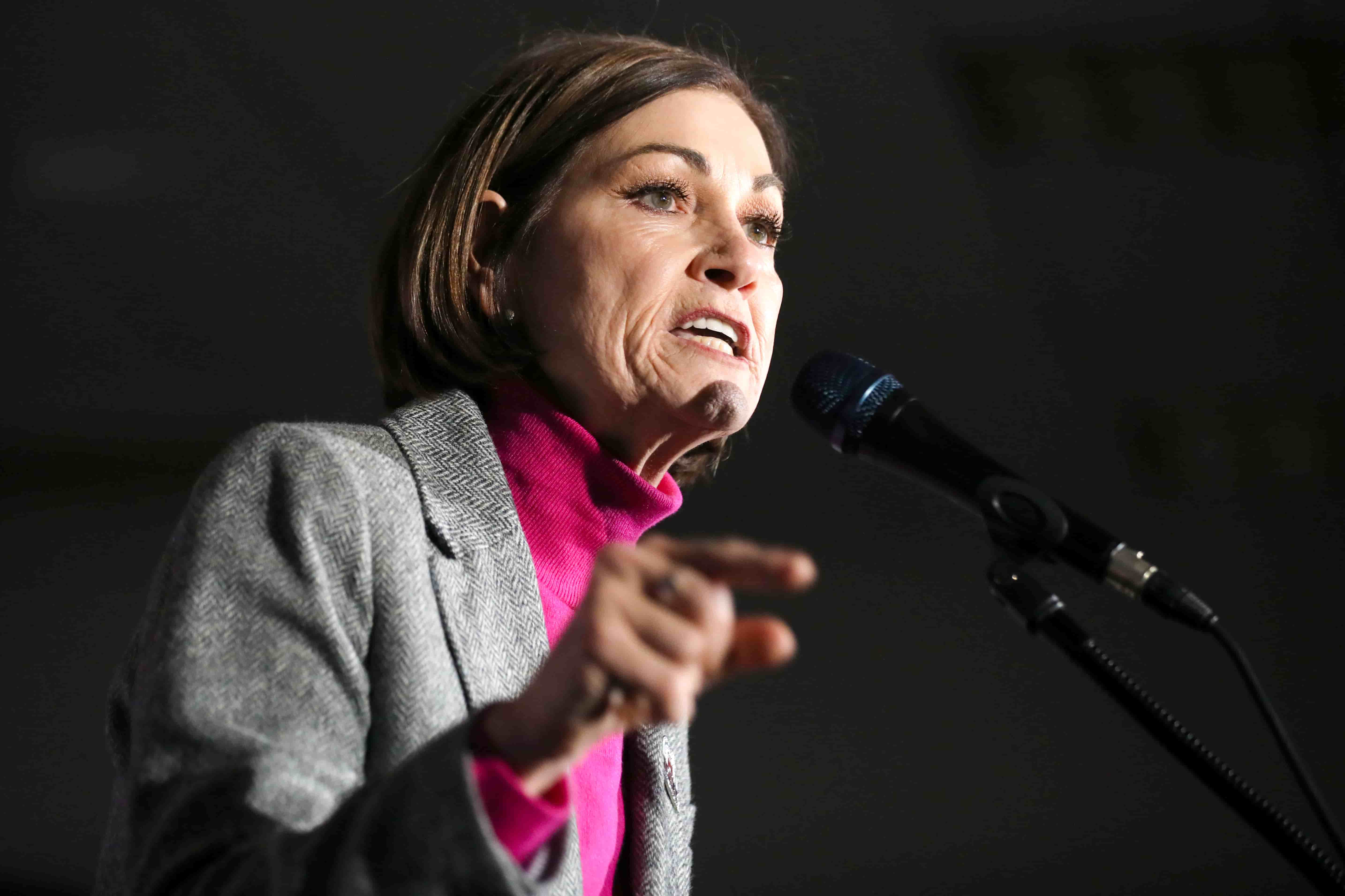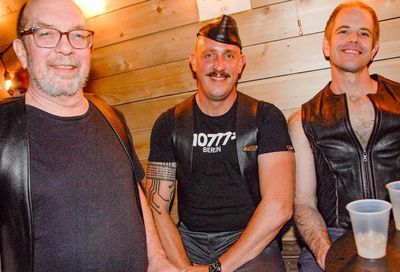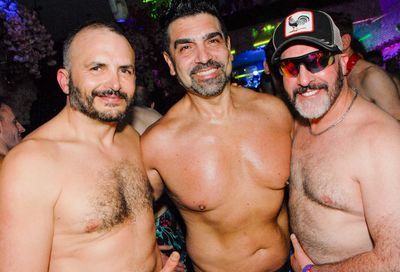Homophobic and transphobic attacks increase as election nears
Candidates report increasingly being subjected to attacks weaponizing their sexuality and gender identity.

As the number of out LGBTQ candidates seeking office steadily rises, you might think attacks weaponizing a person’s sexual orientation or gender identity would decline. It appears the opposite is true.
LGBTQ candidates this cycle have been targeted by various ads attacking their LGBTQ status, their character, or misrepresenting their policy positions while trafficking in anti-LGBTQ stereotypes or tropes. For all that Americans say they’ve become more accepting of the LGBTQ community, just turn on the TV or surf Twitter, and you’ll find that major political parties and outside interest groups think being “out” can be a detriment.
The most obvious attacks have occurred in the race for Congress. In Michigan’s 6th Congressional District, Jon Hoadley, the openly gay Democratic nominee taking on U.S. Rep. Fred Upton (R-Mich.), has come under fire for snarky comments he made on a blog more than 16 years ago, calling women “breeders,” being snide about a seminar warning LGBTQ people to stay away from crystal meth, referring to past sexual partners as “victims,” and quoting a friend who said he had no desire to see a “four-year-old wearing a thong” as part of a catty remark about straight weddings.
Hoadley has since apologized for the comments, while also dismissing them as “bad poetry.” But the National Republican Congressional Committee has been relentless in using Hoadley’s tongue-in-cheek blog posts to attack him, calling him a “pedo sex poet,” sexist, and “creepy.” Critics, including the LGBTQ Victory Fund, have accused the NRCC of utilizing homophobic tropes casting gay men as sexual predators to attack Hoadley. The NRCC says the attacks are legitimate, as the blog posts show both bad judgment and reflect poorly on Hoadley’s character.
In Texas’s 23rd Congressional District, where out lesbian candidate Gina Ortiz Jones is seeking an open congressional seat, the NRCC and third-party groups have sought to cast her as a radical, frequently alleging that she wants to close military bases in the district, which is home to both Lackland and Laughlin Air Force Bases, in order to pay for “transgender reassignment surgeries.”
The attack is a conflation of two issues: Jones favors allowing transgender people to serve openly in the U.S. military, but Republicans falsely claim doing so would be so costly that it would hamper military readiness. In truth, studies have shown the cost of gender confirmation surgery for trans service members would “amount to little more than a rounding error” in the military’s $47.8 billion-dollar health care budget.
The NRCC and third-party groups have also sought to weaponize Jones’s sexuality, noting on opposition research sites that she previously lived in the D.C. area with her partner before moving back to her hometown of San Antonio.
In New Hampshire’s 1st Congressional District, Republican challenger Matt Mowers has tried to link incumbent Congressman Chris Pappas’ sexuality to issues of corruption or conflict of interest. He alleged that Pappas dated a former corporate lobbyist for Amazon, and alleges that the relationship may have influenced bills that were favorable to the Internet shipping giant that Pappas was voting on. He says Pappas should have disclosed the relationship. Pappas has denied the allegations that he acted inappropriately.
But homophobic or transphobic attacks aren’t limited to those seeking to serve on Capitol Hill. In North Carolina, Jenna Wadsworth, an openly bisexual candidate running to be North Carolina’s commissioner of agriculture, received rape and death threats after posting a TikTok video criticizing President Donald Trump’s response to the ongoing pandemic after he was diagnosed with COVID-19. Other social media users have used gendered slurs to attack her, and even the state Democratic Party has abandoned her for posting the video, which — echoing Republican talking points — they claim was inappropriate and wished ill will towards Trump.
Even on the state legislative level, LGBTQ candidates are being maligned. In Colorado, the state’s first openly transgender candidate, Brianna Titone has been targeted by a Facebook ad from a third-party super PAC that refers to Titone by her “deadname,” accuses her of supporting violence, and conflates her support for LGBTQ youth with “sexualizing” children.
In Illinois, State House candidate Ken Mejia-Beal, running against Republican State Rep. Amy Grant, accuses the incumbent of trying to weaponize both his race and sexual orientation. In a recorded fundraising call, Grant said, “That’s all we need is another person in the Black Caucus.” She alleged that Mejia-Beal was being shy about campaigning around the district because he was “afraid of the reaction that people might give him” because of “the way he talks. He’s all LGBTQ.”
Grant subsequently apologized, saying she regrets the comments, but her campaign has at the same time circulated a mailer insinuating that Mejia-Beal was involved in covering up a sexual assault. The assault took place over a decade ago, and involved questions of an alleged cover-up by Illinois House Speaker Mike Madigan, a Democrat. Even though Mejia-Beal wasn’t directly involved, Grant has conflated his failure to condemn Madigan with “being silent when it mattered” regarding the alleged assault.

The attacks can also come from the political left. In California, Palm Springs City Councilwoman Christy Holstege, an out bisexual married to a man, has been attacked by supporters of her opponent in public forums and on social media for allegedly “pretending” to be bisexual to “gain votes” in Palm Springs, where there are a significant number of LGBTQ voters.
A staffer for one of Holstege’s opponents, former Councilman Mike McCulloch, wrote that he doubted Holstege’s membership in the LGBTQ community, alleging she lied about her sexuality. Dian Torres, Holstege’s other opponent, also made similar allegations, claiming that Holstege is claiming to be bisexual “for personal gain and to manipulate people.”
Just down the road, in San Diego, openly gay mayoral candidate Todd Gloria is accusing allies of fellow Democrat Barbara Bry of attacking him for voting for a bill that equalized the punishments for teenagers of the age of majority who have sex with underage peers by no longer listing them on the sex offender registry, just as heterosexual people are not required to do.
Because he voted for the bill in the California State Assembly, Gloria has been threatened with physical violence — just as the bill’s sponsor, State Sen. Scott Wiener (D-San Francisco), was due to a QAnon-inspired conspiracy theory alleging that Democrats were being “soft” on child abusers.
Bry’s campaign has argued that she is a longtime supporter of the LGBTQ community and claims the attacks are coming from one of Gloria’s political rivals within the LGBTQ community, and have nothing to do with the Bry campaign.
See also: New Mexico State House candidate “not proud” of gay adult film past
Elliot Imse, the director of communications at LGBTQ Victory Fund, says that the organization is becoming concerned that anti-LGBTQ attacks might have a “chilling effect,” where LGBTQ candidates choose not to run for office or pursue higher office, out of fears that their family, their past, and even their use of dating apps will become salacious tabloid-fodder.
“Unfortunately, the number of homophobic and transphobia attacks on LGBTQ candidates this cycle have spiked compared to the last three election cycles,” Imse told Metro Weekly. “So it is clear that after this election, Victory Fund and Victory Institute and our partners are going to have to rally around determining how best to stop these attacks from occurring in the first place, and best practices for our candidates if they face these types of attacks.”
Imse says Victory Fund and Victory Institute will be focusing on ensuring attacks don’t happen in the first place, training candidates on how to respond to such controversies, and — most important of all — educating reporters about how to cover anti-LGBTQ attacks.
“The media literacy piece is huge,” says Imse. “If a story breaks that’s focused on an LGBTQ candidate who has used Grindr and sent somewhat explicit messages, if there is an LGBTQ reporter working on that story or there is an LGBTQ reporter in the newsroom, the way that story is going to be covered is probably a lot less sensational than if it’s a 60-year-old white cisgender man on that story.”
Virginia Del. Danica Roem (D-Manassas), the first out transgender person elected to a state legislature, says that LGBTQ candidates have to try and “flip the script” when they find themselves being attacked.
“There are more good, decent people out there who will want to help you overcome a nasty situation like that than there are people who are actually attacking you,” she notes. “So the first thing to remember, any time you are attacked for who you are is: fundraise like hell off of it, immediately. You cannot let that opportunity go to waste.”

For instance, Roem was able to raise more than $36,000 from over 1,000 donors in the days prior to a planned protest by the anti-LGBTQ Westboro Baptist Church to protest her involvement in government.
“Second, don’t take it personally,” Roem says. “It’s not about you. You are merely a whiteboard that they are projecting their insecurities on. Third, contact reporters. And when you do, stay on your message: while they’re focused on that, I’m focused on this. You want that contrast. The response to it isn’t just to ignore it. It’s to incorporate it into your speech: ‘While they’re saying something that is not only untrue and is entirely based on hate, what I’m hearing at the doors from people, what I’m hearing on the phone, is that people really need health care right now.’”
Roem says she was able to employ this tactic when she first won her seat in the 2017 election. Her opponent, Bob Marshall, would highlight her middle name — Anthony — and her transgender identity in interviews, often referring to her using male pronouns.
“You know what I did with that? I took those to NBC4, our largest local TV channel, in terms of viewership. And they did a minute-and-a-half-long story on it, which they aired three times,” Roem says. “Television is inherently a visual medium. You are most likely, as the person being interviewed, to get the thing you’re being interviewed about to air in a few seconds with a dramatic gesture of some sort. So every time Julie Carey asked me a question, I had my yard sign behind my head reading ‘Danica Roem, Fix Route 28.’ And every time I would turn around and point and gesture at the ‘Fix Route 28’ line and say, ‘What am I focused on? This. What’s he focused on? Trash.’
“My TV ads actually ran, in one case, four minutes apart from the actual story,” she adds. “That news story aired on the Thursday before the election. But we let the attack be my predecessor’s closing message, because he couldn’t afford to advertise on NBC4, and he wouldn’t do an interview with Julie Carey. And she called him out in the story, saying she’s been interviewing him for 26 years, and had never been turned down before. I knew we won the campaign the day that story went to air, where I was driving home my message and he sat out the interview.”
Read more:
Hundreds of thousands of trans and nonbinary people could face obstacles in voting
A 6-3 Supreme Court could carve out various exemptions that erode LGBTQ rights
Support Metro Weekly’s Journalism
These are challenging times for news organizations. And yet it’s crucial we stay active and provide vital resources and information to both our local readers and the world. So won’t you please take a moment and consider supporting Metro Weekly with a membership? For as little as $5 a month, you can help ensure Metro Weekly magazine and MetroWeekly.com remain free, viable resources as we provide the best, most diverse, culturally-resonant LGBTQ coverage in both the D.C. region and around the world. Memberships come with exclusive perks and discounts, your own personal digital delivery of each week’s magazine (and an archive), access to our Member's Lounge when it launches this fall, and exclusive members-only items like Metro Weekly Membership Mugs and Tote Bags! Check out all our membership levels here and please join us today!
























